Media
Media apologize after declaring wrong winner in 'cruel' Quebec City mayoral race – CTV News Montreal
MONTREAL —
Sunday may have been a great night for newly reminted Montreal Mayor Valerie Plante, doing a victoy dance onstage, but a few hours away, what looked like a similarly fairy-tale night went badly awry.
Marie-Josée Savard, a Quebec City mayoral candidate who had the blessing of popular outgoing mayor Régis Labeaume, also made a victory speech — after her win was declared by some media — before having the moment yanked away.
“Mayor for two hours,” read some headlines in French-language media on Monday, trying to retrace how things could go so wrong.
“I’m feeling for her this morning,” wrote radio personality Daniel Brouillette of 96.9 CKOI on Facebook, even calling it likely “traumatic” for her.
“Experiencing a defeat is already difficult… I hope the media companies that push themselves to be the first to declare victory on election nights take note of this.”
Savard lost in the end by just 834 votes in a race where nearly 200,000 ballots were cast.
The psychologist and city councillor, Labeaume’s political protegée, lost to a regional director for Centraide, Bruno Marchand.
He was running with the Quebec Forte et Fière party, which is somewhat akin to Plante’s Projet Montreal in its emphasis on greening the city, both in terms of parks and carbon output, and in comparison to Labeaume, who leans more to the right.


By the time voters’ choice was clear, however, Savard had already spoken, jubilantly thanking Quebecers for their support.
“I can’t wait to be sworn in to continue to work and to change offices,” she said in her speech, joking about how her current councillor’s office is right beside the mayoral one.
Even Premier François Legault congratulated her on Twitter, before tweeting again last in the night to say he’d been too hasty, even using the emoji that signifies a person stress-sweating and smiling nervously.
Savard conceded defeat on Monday morning and said she wouldn’t ask for a recount, as well as telling media she won’t be making more statements about the outcome.
“The torture has lasted long enough,” wrote Brouillette. “What a smart woman!”
TWO OUTLETS APOLOGIZE
The two outlets that prematurely declared the victory, Radio-Canada and TVA, both issued statements Monday saying they were sorry.
Radio-Canada also said it would examine how to prevent doing the same in future.
“Our decision desk rigorously followed the usual process,” Luce Julien, Radio-Canada’s executive director of news and current affairs, said in a statement published in English by the CBC.
“We will look for the answers to all our questions to explain what happened. We will communicate all the explanations with the public as soon as we have brought them to light.”
TVA News defended their actions by saying they were going by “the trend” and that “all media” do the same.
That’s not quite right — many media wait until a victory would be extremely unlikely or nearly impossible, statistically speaking, based on the number of uncounted votes.
“At the time Ms. Savard was declared elected, a significant number of [polling stations] had been counted and the trend was holding,” the network wrote in a statement.
“She was more than 5,000 votes ahead. When the trend reversed itself, we corrected the situation,” TVA said.
“Like all media, we declare candidates elected based on trends. We are sorry for this regrettable situation.”
‘WHEN I PUT MYSELF IN HER SHOES, IT’S CRUEL’
The trajectory of the night would have been unexpected even without the flip-flop in results. At the time Savard’s victory was falsely called, Marchand first appeared to be in third place, behind Jean-François Gosselin.
Marchand told media on Monday that his party knew the first votes reported were the mail-in ballots, so they were holding out some tiny hope that the outcome would change — but after all, they’d already been declared the losers, he pointed out.
He wrote eight versions of his election-night speech, he told Radio-Canada. The emotionally draining experience gave him a lot of empathy for what Savard also went through.
“It was a roller-coaster evening for her and for us. I really have a thought for what she may have experienced,” he told the outlet.
“It’s cruel. When I put myself in her shoes, it’s cruel.”
The two would talk on Monday, he said.
Late Monday afternoon, Marchand was also officially congratulated by Legault and by Plante, who issued a statement congratulating all the province’s newly elected big-city mayors, apparently once it seemed safe to do so.
–With files from The Canadian Press
Media
Psychology group says infinite scrolling and other social media features are ‘particularly risky’ to youth mental health – NBC News


A top psychology group is urging technology companies and legislators to take greater steps to protect adolescents’ mental health, arguing that social media platforms are built for adults and are “not inherently suitable for youth.”
Social media features such as endless scrolling and push notifications are “particularly risky” to young people, whose developing brains are less able to disengage from addictive experiences and are more sensitive to distractions, the American Psychological Association wrote in a report released Tuesday.
But age restrictions on social media platforms alone don’t fully address the dangers, especially since many kids easily find workarounds to such limits. Instead, social media companies need to make fundamental design changes, the group said in its report.
“The platforms seem to be designed to keep kids engaged for as long as possible, to keep them on there. And kids are just not able to resist those impulses as effectively as adults,” APA chief science officer Mitch Prinstein said in a phone interview. He added that more than half of teens report at least one symptom of clinical dependency on social media.
“The fact that this is interfering with their in-person interactions, their time when they should be doing schoolwork, and — most importantly — their sleep has really important implications,” Prinstein said.
The report did not offer specific changes that social media companies can implement. Prinstein suggested one option could be to change the default experience of social media accounts for children, with functions such as endless scrolling or alerts shut off.
The report comes nearly a year after the APA issued a landmark health advisory on social media use in adolescence, which acknowledged that social media can be beneficial when it connects young people with peers who experience similar types of adversity offline. The advisory urged social media platforms to minimize adolescents’ online exposure to cyberbullying and cyberhate, among other recommendations.
But technology companies have made “few meaningful changes” since the advisory was released last May, the APA report said, and no federal policies have been adopted.
A spokesperson for Meta, the parent company of Facebook, Instagram and WhatsApp, disputed the assertion that there have not been changes instituted on its platforms recently. In the last year, Meta has begun showing teens a notification when they spend 20 minutes on Facebook and has added parental supervision tools that allow parents to schedule breaks from Facebook for their teens, according to a list of Meta resources for parents and teenagers. Meta also began hiding more results in Instagram’s search tool related to suicide, self-harm and eating disorders, and launched nighttime “nudges” that encourage teens to close the app when it’s late.
Prinstein said more is still needed.
“Although some platforms have experimented with modest changes, it is not enough to ensure children are safe,” he said.
TikTok and X, formerly known as Twitter, did not immediately respond to a request for comment.
Tuesday’s report comes amid broader concern over the effects of social media on young people. In March, Florida passed a law prohibiting children younger than 14 from having social media accounts and requiring parental consent for those ages 14 and 15. California lawmakers have introduced a bill to protect minors from social media addiction. Dozens of states have sued Meta for what they say are deceptive features that harm children’s and teens’ mental health.
And last month, a book was published by social psychologist Jonathan Haidt that argues that smartphones and social media have created a “phone-based childhood,” sending adolescents’ rates of anxiety, depression and self-harm skyrocketing.
The book, “The Anxious Generation: How the Great Rewiring of Childhood Is Causing an Epidemic of Mental Illness,” has been hotly debated. While it has its detractors, it instantly became a bestseller.
Prinstein said that it’s up to technology companies to protect their youngest users, but parents can also help. He recommended all devices in a family’s household go on top of the refrigerator at 9 p.m. each night to help kids — and parents — get the amount of sleep they need. He also said there is no harm in limiting or postponing a child’s use of social media.
“We have no data to suggest that kids suffer negative consequences if they delay social media use, or if their parents set it for half an hour a day, or an hour a day,” he said.
“If anything, kids tell us, anecdotally, that they like to be able to blame it on their parents and say, ‘Sorry, my parents won’t let me stay on for more than an hour, so I have to get off,’” he added. “It kind of gives them a relief.”
Media
More than mere media bias: How New York prosecutors see Trump's scheme with the National Enquirer – MSNBC
IE 11 is not supported. For an optimal experience visit our site on another browser.
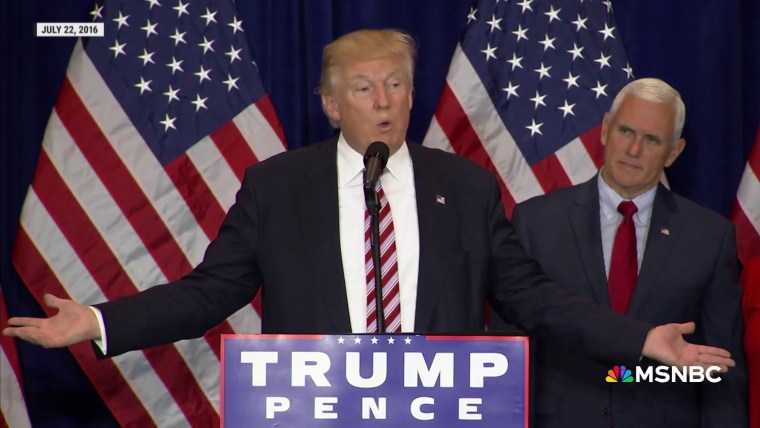

-
Now Playing



More than mere media bias: How New York prosecutors see Trump’s scheme with the National Enquirer
06:15
-
UP NEXT



The real DOJ corruption scandal at the heart of Trump’s criminal trial in New York
11:59
-



Bank with a checkered past and a deep history with Trump raises red flags
07:23
-


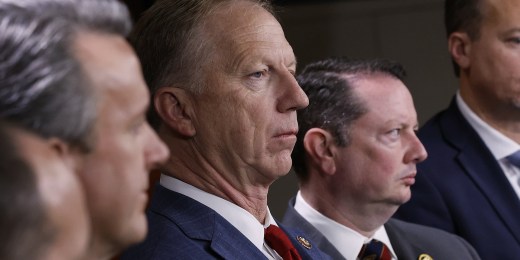
Why Republicans are hiding behind the politics of personality
04:23
-



Media whiffs on the news in Trump’s abortion statement as Dobbs becomes weaponized on global scale
09:17
-



U.S. foes exploit Trump’s divisiveness with fake MAGA accounts; China adopts Russian tactics
10:58
-


Judge has enough of Trump’s attacks on family members; extends gag order on ‘defendant’s vitriol’
04:59
-


Combat training for election workers? Arizona braces for Trump-addled election deniers
07:59
-


Maddow joins colleagues in objecting to McDaniel for legitimizing Trump, attacking democracy
11:59
-

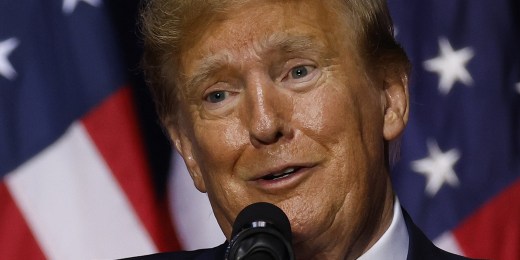
Panicking Trump coming up short for civil fraud penalty; no friends stepping up as deadline nears
07:18
-

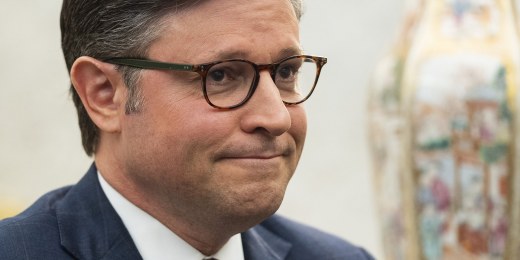
Putin flexes expansionist muscles as GOP stalling starves Ukraine of military aid
04:25
-

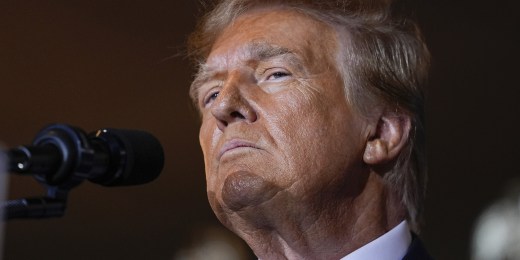
How pro-Trump election officials could make sure your vote doesn’t count
08:19
-


How Russia duped two Republicans with propaganda laundered through fake news sites
03:54
-


‘Massive national security risk’: Trump financial desperation makes access to U.S. secrets dangerous
04:22
-


‘Everything’s for sale’: Trump’s TikTok flip-flop follows disturbing pattern
11:46
-

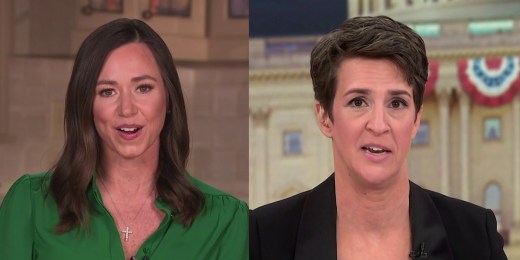
Maddow calls out glaring contradiction in Katie Britt’s GOP response
03:13
-

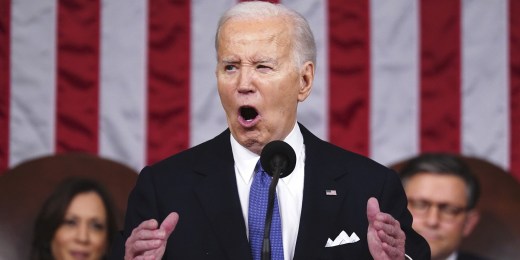
‘Incredibly aggressive’: Biden delivers energized State of the Union
10:39
-

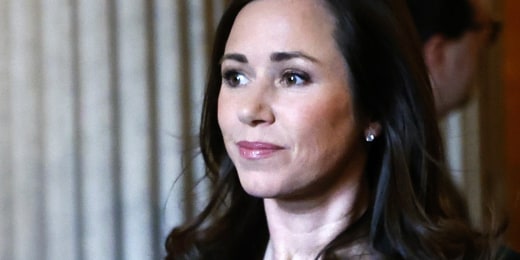
Who is Senator Katie Britt? GOP taps Alabama senator with reproductive rights in spotlight
10:43
-

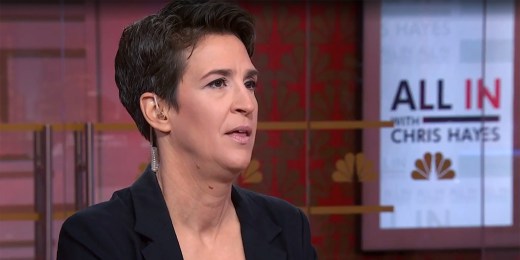
Maddow: This election is a choice ‘between having a democracy and not’
08:37
-

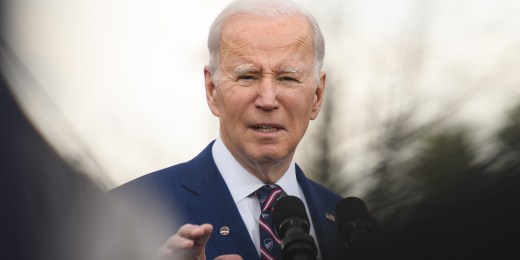
Democrats see opportunities for Biden to take back North Carolina in 2024
08:26
-
Now Playing



More than mere media bias: How New York prosecutors see Trump’s scheme with the National Enquirer
06:15
-
UP NEXT



The real DOJ corruption scandal at the heart of Trump’s criminal trial in New York
11:59
-



Bank with a checkered past and a deep history with Trump raises red flags
07:23
-



Why Republicans are hiding behind the politics of personality
04:23
-



Media whiffs on the news in Trump’s abortion statement as Dobbs becomes weaponized on global scale
09:17
-



U.S. foes exploit Trump’s divisiveness with fake MAGA accounts; China adopts Russian tactics
10:58
Media
The boomer pause: the sign that shows you should really get off social media – The Guardian
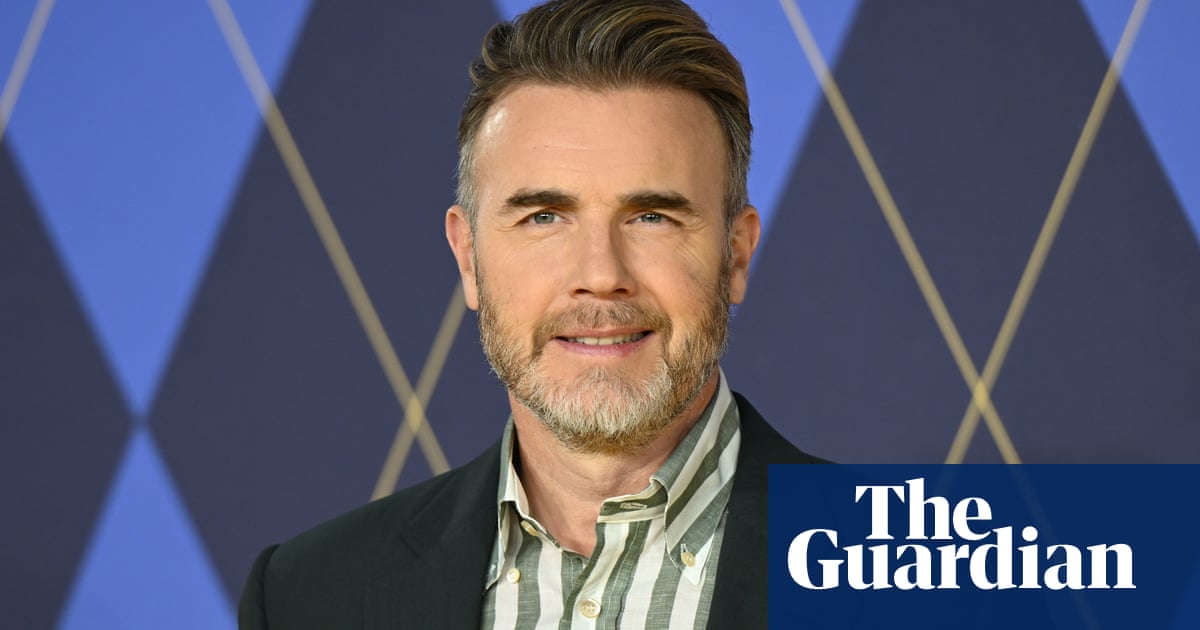

Name: The boomer pause.
Age: A split second.
Appearance: An uncomfortably long break.
Does it refer to an entitled pause between statements to show that you, a boomer, own the room? Not quite: it refers to that awkward moment of silence between hitting “record” and speaking that boomers leave when they film their social media posts.
I’m not sure I understand. It’s like the millennial pause, but longer.
Wait – the millennial pause? A term, coined in 2021, for the telltale split-second pause millennials leave before speaking, because they came of age before TikTok.
And the boomer pause is longer, because boomers are even older? Exactly. Like a long pause before and after speaking.
So it’s a pause indicating age-related technological ineptitude? It’s more than that.
With an added note of self-satisfied indifference about how you come across? That’s part of it, I guess.
And a studied refusal to get to grips with even the most basic and user-friendly editing features? It’s just being a boomer, really.
Would you happen to have a popular example of the phenomenon to hand? Yes: Gary Barlow.
From Take That? That’s the one. On the TikTok account of his wine range, Barlow recently filmed himself grinning in front of a vineyard.
Gary Barlow has a wine range? Keep up. The clip, which has since gone viral, may be transcribed thus: (IMMENSE PAUSE). Barlow: “This is my idea of a very nice day out.” (SECOND IMMENSE PAUSE). End of video.
A boomer pause? “I thought my phone had frozen” was one of the many comments below the post.
Maybe he’s inserting a deliberate pause to … To what?
… to capture your attention. TikTok doesn’t work like that, grandad.
Anyway, I hate to break it to you, but Gary Barlow isn’t a boomer. Are you kidding? He has his own wine range, and homes worth millions in London, Oxfordshire and Santa Monica.
Barlow was born in 1971. The generally acknowledged boomer cutoff is 1964. He is technically Gen X. The boomer pause is down to the length of the gap, not the age of the pauser.
So Kylie Jenner could leave a boomer pause? She could, but she wouldn’t.
Do say: (After counting to five slowly in your head) “Hi, everybody!”
Don’t say: “I am pushing the button! It just keeps flashing this … oops, I think we’re on. Hi, everybody!”
-
Media17 hours ago
DJT Stock Plunges After Trump Media Files to Issue Shares
-
Business16 hours ago
FFAW, ASP Pleased With Resumption of Crab Fishery – VOCM
-
Media16 hours ago
Marjorie Taylor Greene won’t say what happened to her Trump Media stock
-
Business17 hours ago
Javier Blas 10 Things Oil Traders Need to Know About Iran's Attack on Israel – OilPrice.com
-
Media15 hours ago
Trump Media stock slides again to bring it nearly 60% below its peak as euphoria fades – National Post
-
Business22 hours ago
A government mortgage policy that makes sense – with one glaring question – The Globe and Mail
-
Investment18 hours ago
A Once-in-a-Generation Investment Opportunity: 1 Top Artificial Intelligence (AI) Stock to Buy Hand Over Fist in April … – Yahoo Finance
-



 Politics17 hours ago
Politics17 hours agoIn cutting out politics, A24 movie 'Civil War' fails viewers – Los Angeles Times





